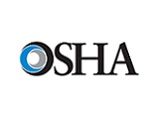Not All Small Businesses Fall Under OSHA, Some Are Exempt
Post Views 10
Although it has been proven that it is good to be under the act there are a number of industries that are exempt from the Occupational Safety and Health Act.
Most of OSHA’s requirements are designed to protect employees from potentially hazardous situations and keep them safe and protected. Employers have alleged that OSHA’s rules are heavily prejudiced in the worker’s favor.
Why they are good, is simply because safety is good for business. A healthy and safe environment increases productivity, it improves employee morale, moreover, studies have evidenced that for every dollar invested in security and an effective safety and health program can save the employer between $4 and $6.
Even if you are not mandated by law, it is your moral duty to protect your workers from injury and illness, whilst they are under your employment. Accidents and injuries can cost more than what you bargained for. Keeping them safe means you pay less in workers compensation as well as lose less workdays to absences due to illness and injury.
However, not all OSHA rules are constructive and useful to small businesses. Many employers find their investigations intrusive and insensitive. Some employers say, that it is difficult to find workers to do hazardous jobs and it is a personal contract between the employer and employee and OSHA has no business to interfere.
Moreover, employers feel that employees use OSHA to browbeat and intimidate employers into their way of thinking.
How will a small business know that they fall under the OSHA ambit or they exempt from it? If you are uncertain it would be advisable to take the advice of an attorney. This will rule out any uncertainty and your realizing down the lines that OSHA rules apply to you and you pay a heavy price for your ignorance.
The basic rules about which small businesses are exempt OSH Act’s injury and incident reporting as well as programmed inspections by Occupational Safety and Health Administration employees are primarily those businesses that have 10 or fewer than 10 employees.
However, if OSHA were to receive an employee complaint, or if a fatal accident takes place or there is a possibility of forthcoming danger, or if a workplace accident has caused hospitalization of two or more workers, OSHA can sent an investigation team, even if your organization fall under the less than 10 workers clause and is exempt.
There are many industries that have been categorized as “low-hazard industries.” They may be exempt; even they have more than 10 employees.
OSHA rules also do apply to self-employed people, meaning that they are masters of their own destiny, farms that employ only immediate family members, since it is presumed that no owner will expose his family members to hazardous conditions and people who employ others for domestic services such as cleaning and child care.
Churches and religious church activities, states, and businesses that are governed by federal agencies also do not fall under the Acts sphere.
Even though who comes under the Act and who does not seems pretty easy to understand there are clauses and certain legal interpretations that make it difficult to pinpoint with any accuracy whether a business falls under OSH Act regulations. So it is worth the investment in time and money, to seek the advice of a legal expert.
Not All Small Businesses Fall Under OSHA, Some Are Exempt by Harrison Barnes


 10 Tips for Staying Healthy at Work and Avoiding Office Obesity
10 Tips for Staying Healthy at Work and Avoiding Office Obesity  Cadillac Tax Ruining Health Care Coverage Plans
Cadillac Tax Ruining Health Care Coverage Plans